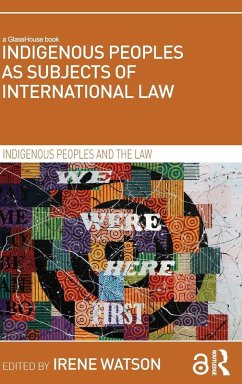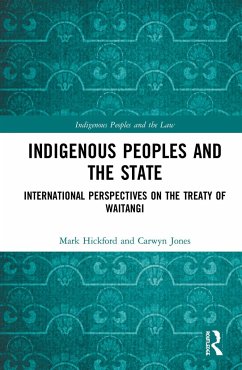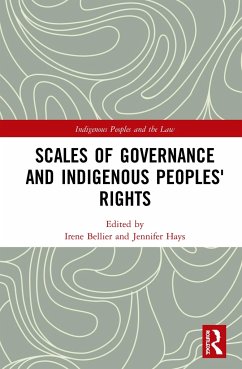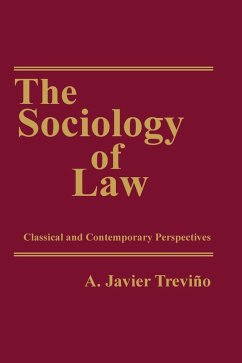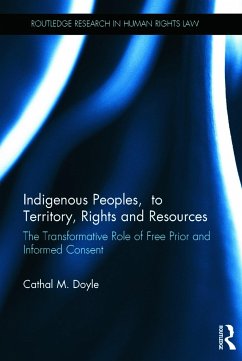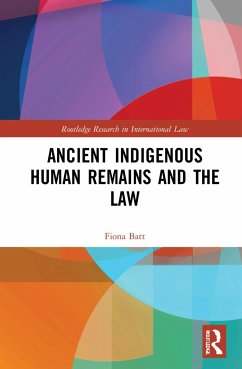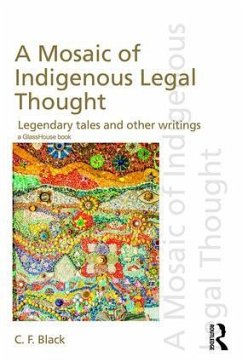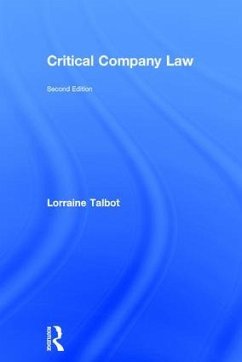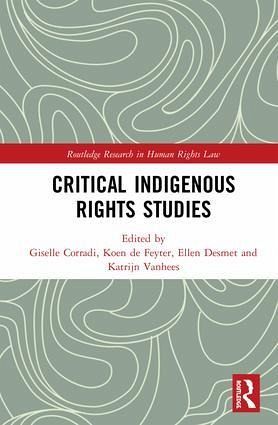
Gebundenes Buch
Critical Indigenous Rights Studies
Versandkostenfrei!
Versandfertig in 1-2 Wochen

PAYBACK Punkte
84 °P sammeln!




This edited volume explores new directions in research on indigenous peoples and their rights. The book proposes a move towards a field of 'critical indigenous rights studies', characterised by taking a realist (as opposed to an idealised) approach towards indigenous peoples combined with an interdisciplinary approach.
Giselle Corradi is senior researcher at the Human Rights Centre of Ghent University. She holds a PhD in Law (2012), a master's degree in Comparative Studies of Culture (2005) and a bachelor's degree in Law (2002). Her research focuses on the relationship between legal pluralism and human rights from a legal anthropological point of view. She has conducted and supervised qualitative studies of law and society in several countries and regions, including Mozambique, Bolivia, Sierra Leone, Greece and Belgium. Koen De Feyter is professor of public international law at the University of Antwerp, where he founded the research group on law and development. He acted as one of the founding fathers of the Law and Development Research Network (LDRn). He publishes in the area of international sustainable development law and human rights. He has conducted socio-legal fieldwork in Asia and Africa and currently contributes to a long-term research project on indigenous rights in Bolivia. Ellen Desmet is assistant professor of migration law at the Faculty of Law and Criminology of Ghent University, Belgium. She is a member of the Human Rights Centre and of the Centre for the Social Study of Migration and Refugees (CESSMIR). Her PhD research concerned indigenous peoples' rights in the context of nature conservation, with a case study on Peru (KU Leuven, 2010). Her current research focuses on asylum and migration law, with particular attention from human rights and legal anthropological perspectives. Katrijn Vanhees is a PhD researcher (2014-2018) at the Human Rights Centre of Ghent University. She holds master's degrees in History and Law, both obtained at Ghent University. She is an affiliated researcher of the Centre for Gender Studies, University of Rwanda. Her PhD focuses on improving land rights for women in Rwanda. The research investigates the underlying causes of women's restricted access to land in Rwanda by studying the gender-based division of socio-economic power and resources in the household and the local community as a whole. In addition, it analyses how this gender-bargaining concept is articulated in judicial mediation cases at the Abunzi (local mediators) level.
Produktdetails
- Verlag: Routledge
- Seitenzahl: 250
- Erscheinungstermin: 15. August 2018
- Englisch
- Abmessung: 240mm x 161mm x 18mm
- Gewicht: 543g
- ISBN-13: 9781138729339
- ISBN-10: 1138729337
- Artikelnr.: 53685358
Herstellerkennzeichnung
Libri GmbH
Europaallee 1
36244 Bad Hersfeld
gpsr@libri.de
Für dieses Produkt wurde noch keine Bewertung abgegeben. Wir würden uns sehr freuen, wenn du die erste Bewertung schreibst!
Eine Bewertung schreiben
Eine Bewertung schreiben
Andere Kunden interessierten sich für


